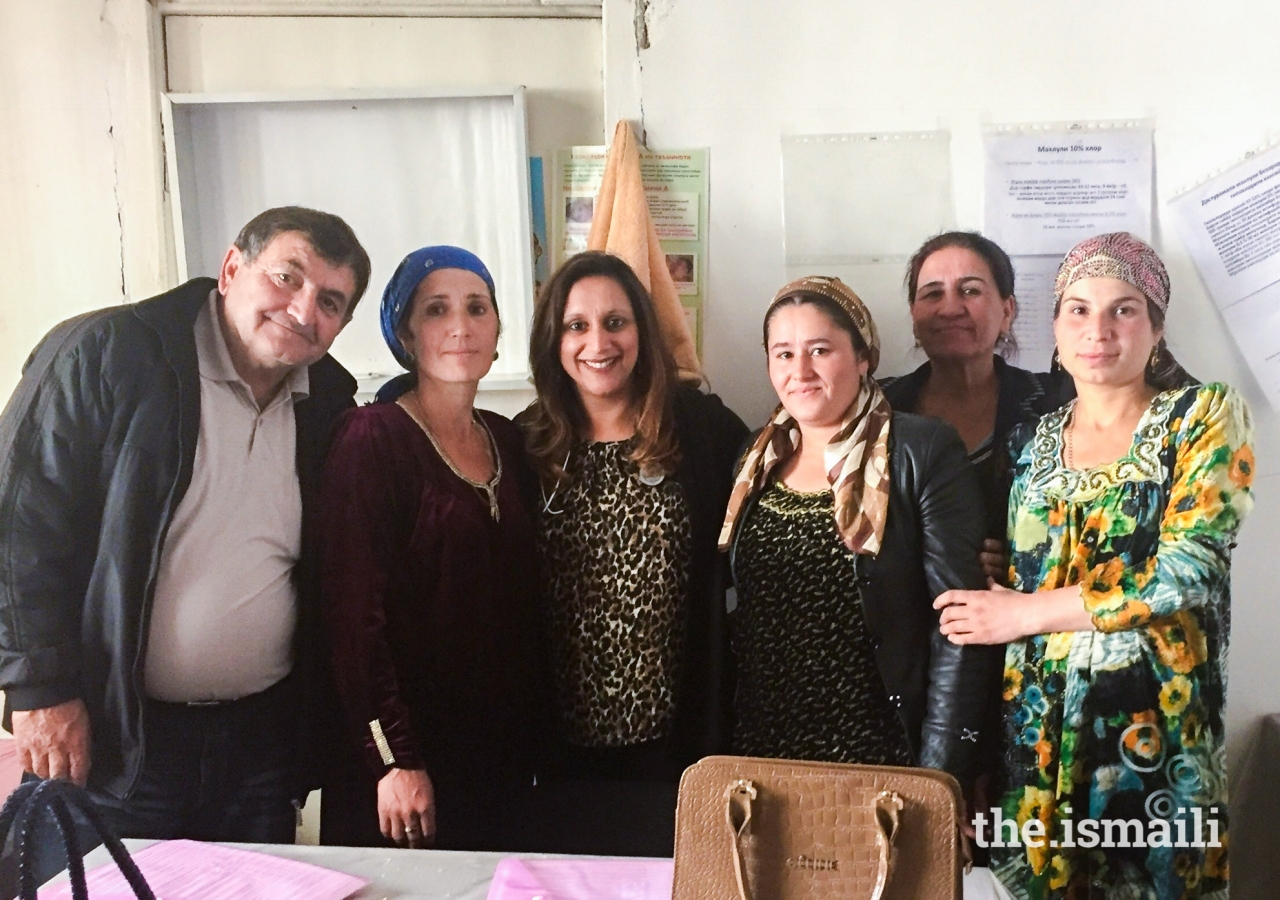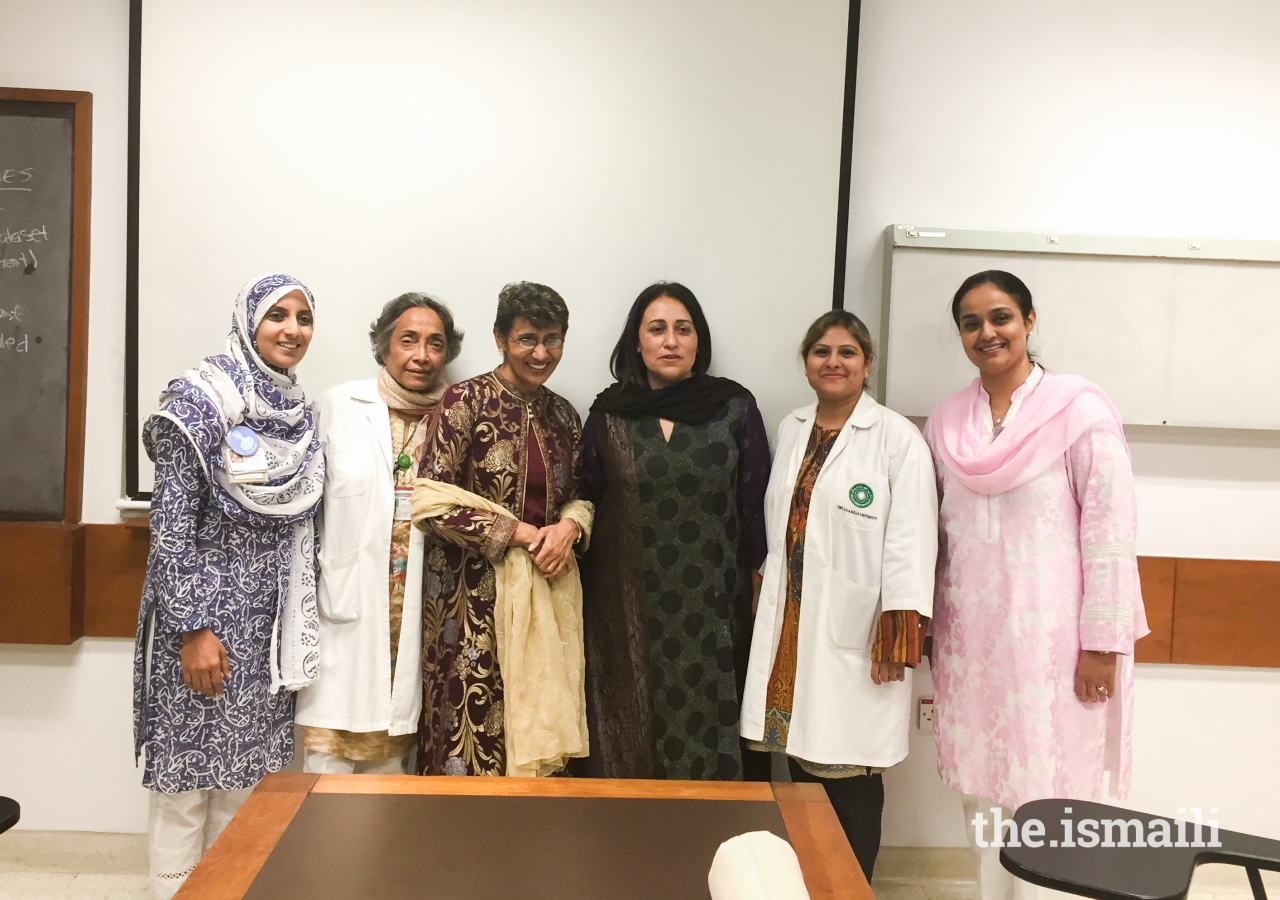Some women in the Ismaili community have been making global impacts – those that have some major ripple effects. Recently, a team of medical professionals from the United States participated in an international knowledge exchange that resulted in women being able to take charge of their health. According to the World Health Organization, breast cancer is the most common cancer worldwide and is increasing, especially in developing countries where the majority of cases are often diagnosed in late stages.
The Aga Khan Health Board (AKHB) for the United States and Aga Khan Health Services (AKHS), Tajikistan partnered to bring awareness about breast cancer to the Jamat, trained healthcare professionals in clinical breast exams and initiated a systematic process of managing women with a breast mass. This project took place with a team of professionals including Dr. Zohray Talib, Associate Dean for Medical Education and Global Health at the California University of Science and Medicine, and Dr. Farin Amersi, Director of the Surgical Residency Program at Cedars-Sinai Medical Center, who took a phased approach in strengthening health systems in Tajikistan.
During the first phase, Dr. Amersi recalls, “We started an evaluation process, there was a machine to do mammograms, but no screenings, no capabilities to have patients undergo mammograms and lastly, no one to interpret the findings.” The team hosted a series of educational activities, including lectures, that taught healthcare professionals in Tajikistan about breast cancer, and how to test and interpret findings. “We educated them about the disease and it was extremely gratifying to be able to teach and see the impact. Many did not even know how to do exams or self-exams,” shared Dr. Amersi.
The second phase, focused more on corroborating findings and if anyone had a positive screening, Dr. Amersi worked with a local surgeon and taught the techniques of doing minimally invasive surgeries. During the third phase, the team returned to train six family medicine doctors as master trainers who subsequently trained 147 nurses. The team also conducted a screening campaign, a first in the region, where hundreds of women were screened for cancer and consulted with medical professionals where necessary.
Over 3,000 women across the Tajik province of Badakhshan participated in breast examinations – some for the first time in their lives. “I have always had a strong sense to give back to the community and this seemed very natural for me,” explained Dr. Talib. “My seva has always been synergistic with my work. and if we are successful in implementing a program or training, we are able to make a longer, lasting, impact. This is how we strengthen Imamat Institutions.”
While AKHS sits close to the population and facilitates meaningful and much needed access to service, Aga Khan University (AKU) sits in the world of academics and teaching. In order to make a sustainable impact, educating the population is key – especially the next generation of health practitioners. In Pakistan, Professor in the Department of Surgery at Yale School of Medicine, Dr. Anees Chagpar, worked on a project in the same arena alongside Dr. Farin Amersi and Dr. Zohray Talib.
Dr. Chagpar understood what was needed to establish accredited breast centers from her background in the United States. In Asia, aside from Abu Dhabi, there is no other breast center. Together, the team evaluated the AKU clinical program to prepare for international accreditation, invigorated scholarly activity by understanding capacity and infrastructure in place, and assessed the educational programs related to breast cancer surgery with emphasis on surgical residencies and breast surgical oncology fellowships.
“As we went through this evolutionary process, the AKU team began to see real differences,” explained Dr. Chagpar. “I was gratified that the process change and outcomes were witnessed by those working closely on the project,” she reflects. By working with AKU in Karachi, she was able to understand AKU’s needs to lay the groundwork for the first breast center in Pakistan. This project is currently underway with the goal of establishing a facility that allows research and development of new knowledge.
All of these women trailblazers in the realm of healthcare, came together to create quality access to services for women around the world. Not only did they impact the wellbeing of the Jamat in this region, they are gradually strengthening health systems. Development takes time, there is no overnight fix. Together, there is a possibility of making a meaningful, lasting impact. By empowering women in Pakistan and Tajikistan to take control of their health, they are not only making a change in their lives, but are impacting the lives of future generations.









